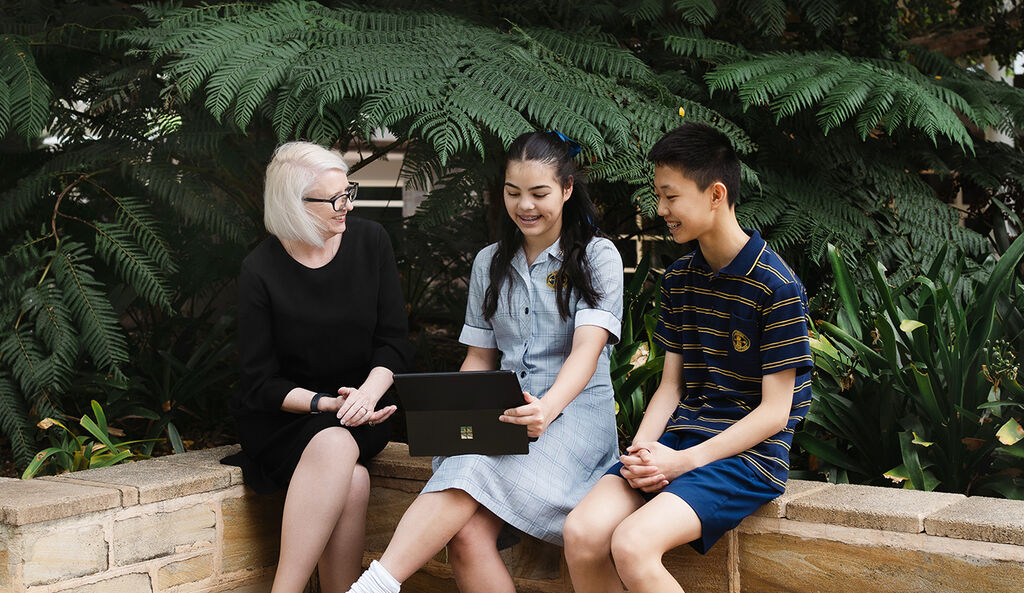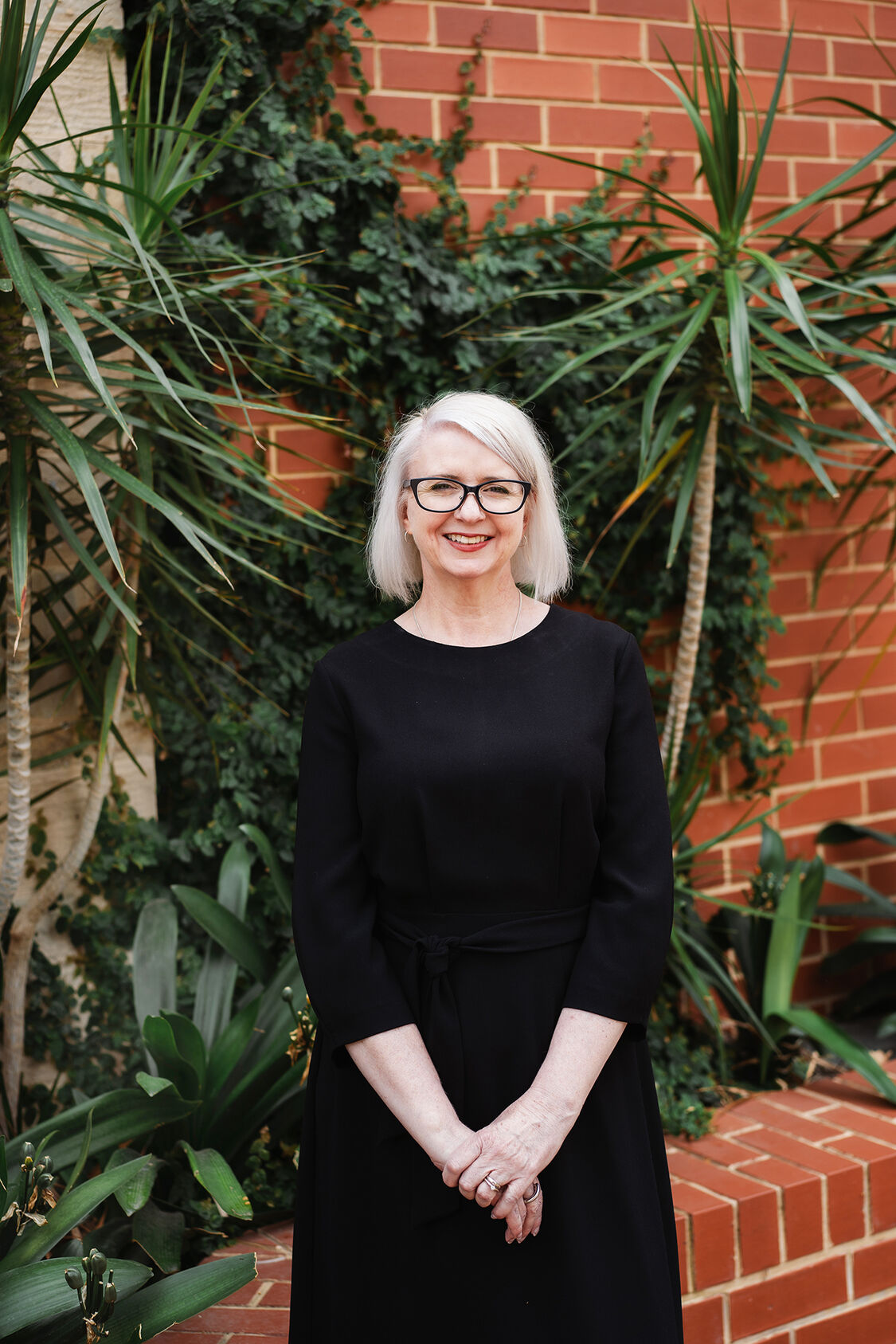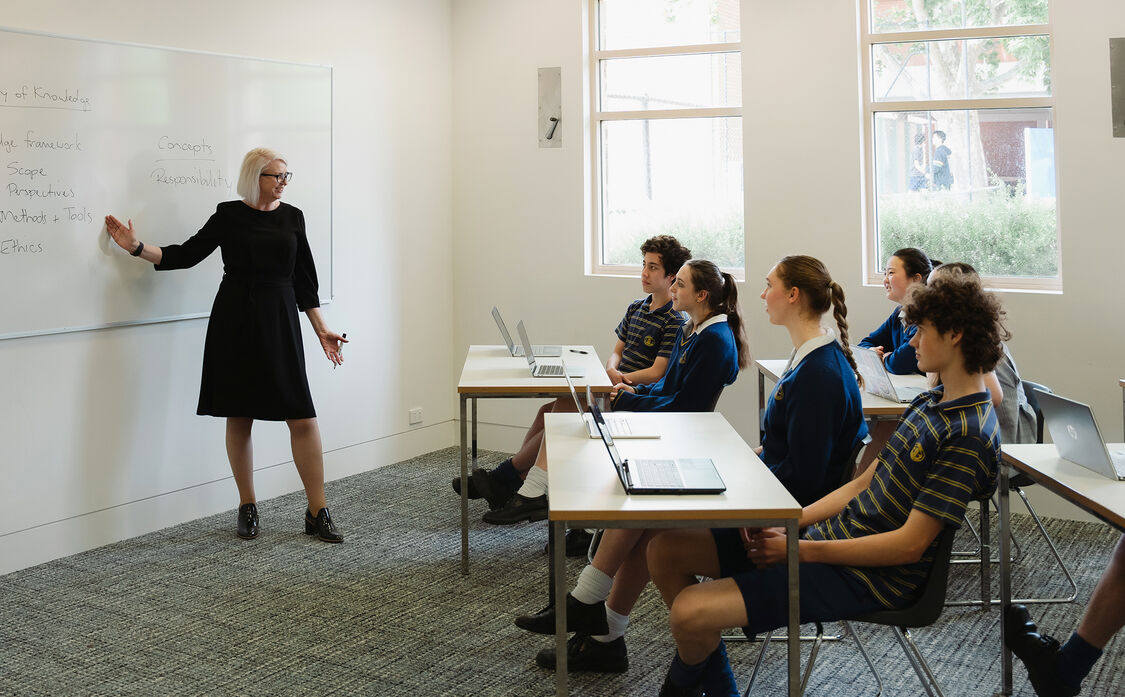28 May 2025
For most of my career, I have been, in some form or other, a leader of learning, as a Head of the English Department and Senior Years Learning Leader at a previous school, and as the Head of SACE at Pembroke School since 2020. As someone with a lifelong love of learning myself, I have relished the chance to work with young people to shape learning programs that address learners’ and the wider community’s needs. So, when the opportunity came to work in a role focusing on the breadth of learning from our very youngest students in ELC to those who are facing the end of formal schooling in Year 12, I jumped at it.
The Dean of Learning Cultures and Innovation is a new senior leadership role at Pembroke, created in recognition of the considerable work needed to realise the aspirational vision of Pembroke's Strategic Plan 2030 in particular, alongside the changing nature of education more generally. The role, which I have been in since January 2024, exists in order to address the needs of the 21st century learner, to drive innovation and change within teaching and learning at Pembroke, while also continuing to honour our history and the significant contributions to education made by the likes of Didi Medlin and John Moody more than 50 years ago, when they joined forces to merge Girton and King’s into the extraordinary place that is Pembroke School today.
But what, you may ask, does a Dean of Learning Cultures and Innovation actually do? What is a learning culture and what really is innovation?
Firstly, you’ll notice that it is ‘Learning Cultures’, the plural. This is an acknowledgement of the fact that each Sub-School within Pembroke (Junior, Middle, Senior and Boarding) has its own particular and unique culture, such that it is its own distinct village, with a culture that we wish to honour and preserve, and that serves the needs of its specific learners, appropriate for their age and cognitive development. My role is to build upon and strengthen each of these learning cultures so that they are inclusive of all students, providing them with opportunities to feel that they are collectively working towards something bigger than themselves, while also knowing that the journey is personalised for each one of them.
But how do we build and strengthen culture? Ron Ritchhart, retired Senior Research Associate at Harvard Project Zero and current Fellow at the University of Melbourne, has said that 'Culture lies in the messages we send.' I believe that such messages are formed in a variety of ways including through the informal interactions we have each day with students, the learning programs we design and their emphasis on the development of student understanding, student agency and student efficacy, and within formal policies and procedures that direct students regarding how best to engage with their learning.
My work in 2024 was largely focused on creating the Pembroke Learning and Caring Framework, the first initiative within the Strategic Plan, in close collaboration with Rebecca Forrest, the Dean of Student Wellbeing. The Pembroke Learning and Caring Framework recognises that learning extends beyond the classroom and is something that can only occur in a place of psychological safety and academic wellbeing.
We are one of very few schools who have deliberately articulated the inextricable link between learning and caring, and I am proud to have been involved in such an ambitious and rewarding project.
The framework is, then, the expression of an overarching Culture of Learning across the whole School. While aspects of this look different in each Sub-School, there is commonality in the pursuit and love of learning, as experienced through a range of learning opportunities, which prioritises the importance of learning over a narrow focus on grades alone. The next step, and my work for 2025, is to see the framework clearly manifested within our learning and caring programs.
Innovation in pedagogy and development of a culture of learning are aspects of this role that I absolutely relish, yet I am greatly aware that such things must be underpinned by foundations of policy, research and good practice. Indeed, I am not alone in thinking so, as the International Baccalaureate assesses the culture of its schools through the strength of its policies. A lot of my time, therefore, is spent engaging with the latest research or developing policy that is related to learning, whether it be to do with deadlines, the use of generative AI and other aspects of academic integrity, or an overarching Assessment Policy to articulate the School’s philosophy in relation to the place assessment has within teaching and learning.
None of this sounds particularly innovative, does it? Innovation is, I believe, a shared responsibility within a school. My role, as the Dean of Learning Cultures and Innovation, is less about being innovative myself (although I am always keen to try new things), but rather to promote and facilitate innovation within the School, done so through using research to guide staff in relation to pedagogy. Innovation in technology is one facet of this,as Pembroke develops its use of technological tools to assist in the delivery of engaging learning opportunities. But innovation also comes in non-technological forms – particularly in relation to pedagogy, curriculum and assessment. It is these aspects of innovation about which I am especially interested.
What I particularly enjoy about such innovation is the collaborative nature of it. I am currently engaged in the development of our bespoke Pembroke Graduate Qualities, in collaboration with our Dean of Studies Clark Roberts-Thomson, and in the development of Pembroke Effective Pedagogies, a ‘playbook’ of pedagogical innovations to support teachers in the development of their practice, in partnership with our Dean of Professional Growth and Development Simon Miller.
Since assuming the role of Dean of Learning Cultures and Innovation, I have also led a number of other initiatives focused upon creating a stronger culture of learning through the articulation of why we want students to learn what we want them to learn (curriculum), how we want them to learn it (pedagogy) and how they are progressing towards that learning (assessment). This work, and much more, will help Pembroke to continue to be a leading educational institution within Australia and the world.
But most importantly, my role, alongside those of others, is to ensure that each Pembroke student is given the opportunity to achieve to their potential. I believe in the importance of differentiation, whether for support or for extension, to allow each student to experience success, in whatever form that takes, on their personal learning journey. My focus is on the development of the necessary breadth and depth of knowledge and understanding in students, helping to mould them into the ‘T-shaped’ learners described by Alan Finkel, Australia’s former Chief Scientist, as well as to foster those skills of resilience, rigour, intellectual curiosity and empathy that are essential for our young people if they are to become the upstanding citizens of our world that we hope they will be.
It is exciting, invigorating and important work, and I absolutely love it!
Michele McEvoy
Dean of Learning Cultures and Innovation





